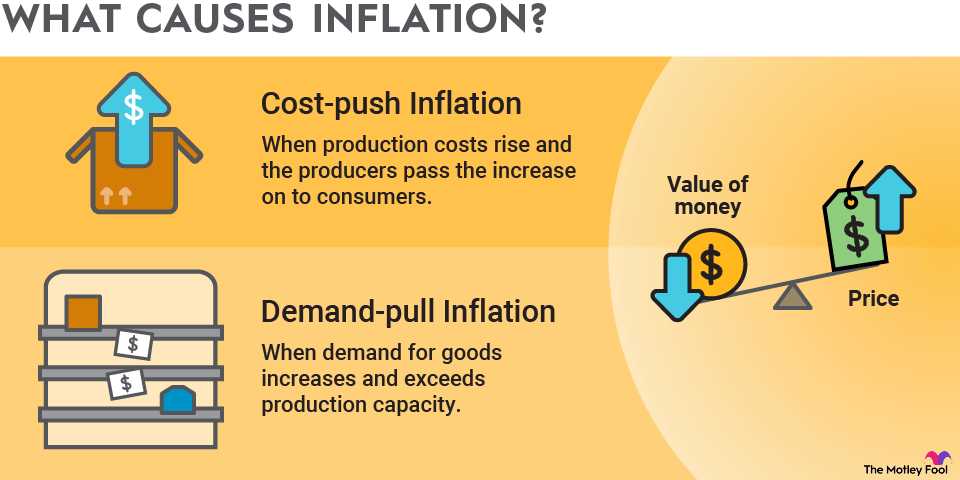One important concept that comes up in several different areas of finance and in other contexts is net vs. gross amounts. In this article, we'll take a look at the difference between these two terms and specifically what they mean in reference to income.

Gross vs. net: What's the difference?
In a broad context, the term "gross" is used to refer to all of something. It is typically used in a financial context to describe the total amount of money earned before subtracting certain costs and payments. On the other hand, "net" is typically used to describe the actual amount of money that remains after accounting for all expenses involved.
For example, when discussing a business, gross income refers to the total sales of a business minus what it spent producing its products. Net income is the actual amount of profit a business earns after accounting for all costs. (We'll take a closer look at these calculations in the next section.)
There can be non-financial uses for the terms "gross" and "net" as well. For example, the gross weight of a container of food refers to the weight of the food itself as well as the packaging. The net weight only refers to the weight of the food itself.
Calculating gross vs. net income
Gross income is a rather simple calculation. To determine the gross income for a business, start with its net sales or revenue and subtract the cost of goods sold, depreciation, and amortization. For example, if you own a retail store that produced $1 million in net sales last year, you spent $400,000 buying your inventory and had a $10,000 depreciation expense, you would have a gross income of $590,000.
However, as any business owner knows, this doesn't mean that you put $590,000 in your pocket at the end of the year. There are plenty of other costs of running a business that need to be taken into account.
First, subtract selling, general, and administrative (SG&A) expenses, as well as any research and development (R&D) costs. For example, if you hire part-time employees to staff your store or rent the building you occupy, it would be an example of an SG&A expense. This will produce a figure known as operating income. Then, add any non-operating income, such as interest, and subtract any interest you pay on debts, as well as income taxes paid by the business. This will produce net income.
Because net income is typically the final number that is produced in a business's income statement, it is often referred to as bottom-line income or simply as "the bottom line." On an income statement, you can typically see the line-by-line calculation of net income, starting with gross income and net sales on the top.
For an easy-to-follow methodology, here are the steps to calculate net income:
- Start with net sales.
- Subtract the cost of goods sold.
- Subtract depreciation, depletion, and amortization.
- Subtract selling, general, and administrative (SG&A) expenses.
- Subtract any research and development (R&D) costs.
- Add any other forms of income, such as interest on cash reserves.
- Subtract the interest you pay on debts.
- Subtract income taxes (state, federal, foreign, etc.).
Gross and net income can be calculated for a variety of time frames. Gross annual income and gross monthly income are two common time frames, but it's entirely possible for businesses and individuals to calculate income over multiyear periods, as well as over the short term.
It's also worth noting that gross income is often used in the context of individual income to describe the total amount of money a person (or couple) earns in a given year. This can include salary, bonus, wages, Social Security, 401(k) income, interest, dividends, capital gains, and more.
For example, if you earn a salary of $100,000 from your job and have no other sources of income, that would be your gross income. Net income in a personal context is typically used to refer to after-tax or take-home income after all taxes and other deductions are subtracted. It's also important to mention that taxable income is a different concept and is more of a legal definition of the portion of your income that is subject to the federal income tax.
Example of calculating gross versus net income
For a more thorough example, let's say that you own a business with net 2024 sales of $5 million, it costs $2 million to produce the products you sell, and your equipment depreciates at a rate of $250,000 every year. This gives you a gross annual income of $2.75 million.
We'll say that you have the following expenses:
- $1 million in wages, benefits, rent, and other SG&A expenses.
- $250,000 in research and development (R&D) costs.
After subtracting these, we see you have an operating income of $1.5 million.
We'll also say that your business has a substantial amount of money in the bank and earned $500,000 in interest income for the year, and that you have no debt. You paid $800,000 in federal income taxes and $200,000 in state income taxes. After adding the interest income, you have $2 million, and after paying your taxes, you have a net income of $1 million.
Related investing topics
Why the difference matters
The difference between gross and net income is important. From a practical standpoint, net income tells you how much profit a business is actually earning. It's entirely possible (and not unusual) for fast-growing businesses to have excellent gross profit margins but to be unprofitable on a net income basis.
Gross income and net income are also commonly used to calculate profit margins. Although gross income doesn't necessarily translate into actual earnings, a healthy gross margin is often used as a gauge of a business's future profit potential, especially if it is relatively young and growing rapidly.



















